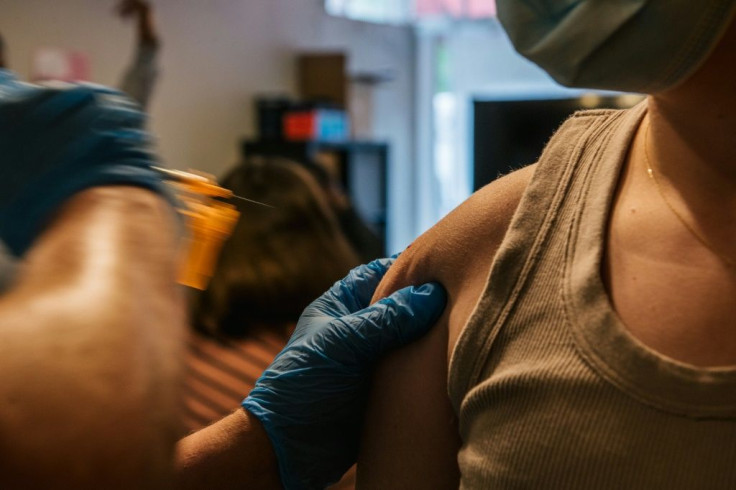COVID-19 Vaccine Patch In The Works, Won't Require Injections
KEY POINTS
- A COVID-19 vaccine patch being developed in Australia would give people immunity against the virus without injections
- The patch would be easier to store and distribute than other vaccines, researchers say
- Scientists said the patch is effective in neutralizing multiple strains, including the U.K. and South Africa variants
Scientists are now working on a needle-free vaccine patch against COVID-19. Instead of getting injected, recipients would need only to place the patch on their skin.
A group of global researchers at the University of Queensland in Australia have teamed up with a company called Vaxxas to test their newly developed COVID-19 vaccine patch, KXAN reported.
The patch, which is about 1 square centimeter in size, contains thousands of microscopic projections coated with a stabilized spike protein. When placed on the skin, the patch is expected to deliver immunity against the virus that causes COVID-19, SARS-CoV-2.
Jason McLellan, a molecular biosciences associate professor, and his team at the University of Texas at Austin developed the spike protein in early 2020. He explained that the spike protein used in the patch is an even more "stabilized" version of their first spike protein — which still serves as the basis for all the COVID-19 vaccines currently approved for use in the U.S.
“It could be a really interesting development that could help vaccinate a lot of people," McLellan told KXAN.
The projections can quickly deliver the vaccine to immune cells and may be more efficient than needles and syringes, Medical Design and Outsourcing reported, citing Vaxxas officials.
The researchers said the patch would be easier to store compared to other vaccines that require extremely cold storage requirements as it can be kept at around 77 degrees Fahrenheit for almost a month. As a result, the COVID-19 vaccine patch would be easier to distribute and could also be shipped by mail.
Early clinical trials done on the patch have shown promising results, with researchers reporting that the device produced strong immune responses when exposed to SARS-CoV-2.
“It also neutralizes multiple variants, including the U.K. and South Africa variants,” said Dr. David Muller, research fellow and lead author of the study.
Muller explained, “We designed this research to address the serious ongoing need to improve the global vaccination efforts against Covid-19 and future pandemics. Based on our results, we believe that Vaxxas’ HD-MAP could offer a compelling solution that importantly could use less vaccine and potentially could be readily distributed without refrigeration for self-administration.”
McLellan told the outlet that he believes the COVID-19 vaccine path could be a “game-changer."
“It could also be a game-changer because it doesn’t require skilled health care workers to handle the syringe to perform the dilutions. Pretty much anybody could just put it on their arm and use it," he explained.
The Vaxxas Nanopatch is still in the early testing phases in Australia.

© Copyright IBTimes 2025. All rights reserved.





















